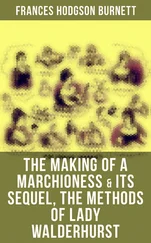School and home need to work together – or at least in trusting partnership. With long experience of teenagers, we have dealt with most things: absenteeism, amnesia about homework deadlines, absconding, arson … one could go on through the alphabet but you get my point. We try always to operate from the principle that the school is a place to learn about boundaries but wherever possible to have the chance to start again and do better. But of course we know that having heard your daughter’s own account of events, you may not necessarily always see things as we do. If as parents you are unhappy about the way we handle something, try not to talk about the school critically in front of your daughter at home, but come and talk to me or your daughter’s tutor. Children are naturally loyal – both to their school, and to their parents. The girl who has heard her parents running the school down at home cannot then look her headmistress in the eye: an invisible line has been crossed; something is wrong in her world. I have seen this on a few occasions and it always saddens me to see the girl removed from that happy circle of security and unsure of the way back. We need to build up, to see her through good times and bad, that precious, triangular relationship of trust and respect between pupil, parents and school. This is incredibly important to the security and stability of your daughter. Once it has been damaged, it can be very difficult to repair. If you promise not to criticise us at home, I would end with a wry smile, I promise I will not say to your daughter: ‘I hear your mother has been complaining again, Anya!’ If the parents felt they had had a talk from the headmistress, well, they had. Better that than have communication breakdown later when, inevitably, it would be the girl who suffered.
So how to be a good ‘new’ parent? Remember that whatever school meant to you, your child is writing her own story. Get used to the fact that you will not know everything: be sure to forge a good relationship with your child’s most important adult at school – probably the tutor – which means not expecting daily personal bulletins on progress, but a relationship of trust where you would feel comfortable to be in touch if you had a genuine concern or worry. Respect the fact that your child will choose her own friends, develop her own opinions and explore her own interests: this is her education after all … Encourage and enjoy her growing independence, for just as she develops her separate life from you, just as surely she will want, in her own time, to share parts of it too.
In thinking about ourselves as former pupils and now as parents, projecting our own memories of school onto the fresh experience of our children, we have always to keep in mind that the world today is very different from the world in which we grew up ourselves. It sounds so obvious. The generation growing up in schools today – sometimes called Generation Z or the post-millennial generation – have for one thing never known a world without the internet, the iPhone and the iPad. Using technology comes naturally to them and they are used to the freedoms it brings: the ability to find out information instantly, the ability to connect with others unlimited by time and space and the ability to create virtual identities which appear to be untrammelled by the responsibilities of normal life. In cities especially, children tend to be both less connected to their immediate communities and less interested in national politics while at the same time being better informed about the macro, global problems of inequality, poverty and climate change. Following the financial crisis of 2008 and the revaluation of financial power, together with the loss of respect for certain industries such as banking, there is now a more general questioning of the authority of institutions. This generation does not find virtue in patience; with the answer to anything a screen touch away, students value speed over accuracy. However, while they may be able to source information very fast, they are less equipped to discriminate as to whether sources are trustworthy. When you take a book out of the school library, you pretty much know it is worth reading or it wouldn’t be there. Look up something online and you don’t necessarily have that assurance. The prevalence of mental ill health in young people points amongst other things to the darker side of the fast-moving and technological world they inhabit, and the sense of being alone which prevails within the virtual world of cyber connectivity. All that said, Generation Z are fired with a great sense of social responsibility: they grasp the fact that if the species is to survive, they will need to turn a competitive world in which wealth is more and more unequally distributed into a collaborative one where shrinking natural resources are shared. Many opt to volunteer their time in projects which have social benefits either at home or abroad (almost every girl in the top year was doing this by the time I left St Paul’s) and they look forward to careers which will be more varied and less linear than those their parents have experienced. (I will return to specific aspects of this wider context and the Generation Z mindset in later chapters.) The point to emphasise here is that the prevailing characteristic which they and therefore schools need to grapple with is a climate of much greater uncertainty and unpredictability. This provides challenge and opportunity and we have to prepare them for both. To lead fulfilled lives and contribute to society they will need more than their natural optimism and enviably short memory for things that went wrong. They will need creativity and imagination, the ability to work with others and to apply their knowledge in new situations, and they will also need resilience and grit. Increasingly therefore, these are qualities we are actively addressing in our schools.
At the start of the year, for the school itself, with all the hopes and aspirations of so many people to meet and manage, creating the make-believe of a beginning offers special challenges – for leadership and for teamwork. I often thought of the process in terms of flying a large, fully loaded passenger aircraft. As the head, you’re the pilot: you climb aboard, settle into your seat and check the controls, remove your peaked cap and taxi down the runway. The great machine, loaded with its freight of people, luggage and expectations, gathers speed, and then by a miracle of engineering, with much shuddering and thanks to laws of physics that few understand, the whole thing climbs into the skies and becomes airborne. At St Paul’s, with almost 250 staff and over 740 pupils, that point came when the first staff meeting, the first assembly, and the arrival and induction of new staff and pupils were all comfortably ticked off. At last I would put away my file with its dividers marked ‘beginning of school year’ and think to myself: okay, so far so good. Now we climb to cruising altitude.
Leaders need to tell stories, and good stories have a beginning that makes you want to read on. The start of a new academic year provides various opportunities as a head for using a public forum – of which the school assembly is one example – to set the tone and mood, and engage everyone with excitement for the challenges ahead. That’s how you would speak to the girls, but then there are the staff to think about. In speaking to any large audience it’s important that each person feels you are speaking directly to them. Keeping the analogy of the story in mind, everyone listening to you is a character in the adventure you are about to begin and great things are only achieved when teams of people work together, each person seeing what it is that they (and only they) can contribute to the whole. I made sure that the opening staff meeting of the year was attended by everyone – not only teachers, but the cleaning and catering staff, business managers, those who worked in the offices, together with technicians and groundsmen too – we were one team, all contributing to the unfolding story of one school.
Читать дальше












